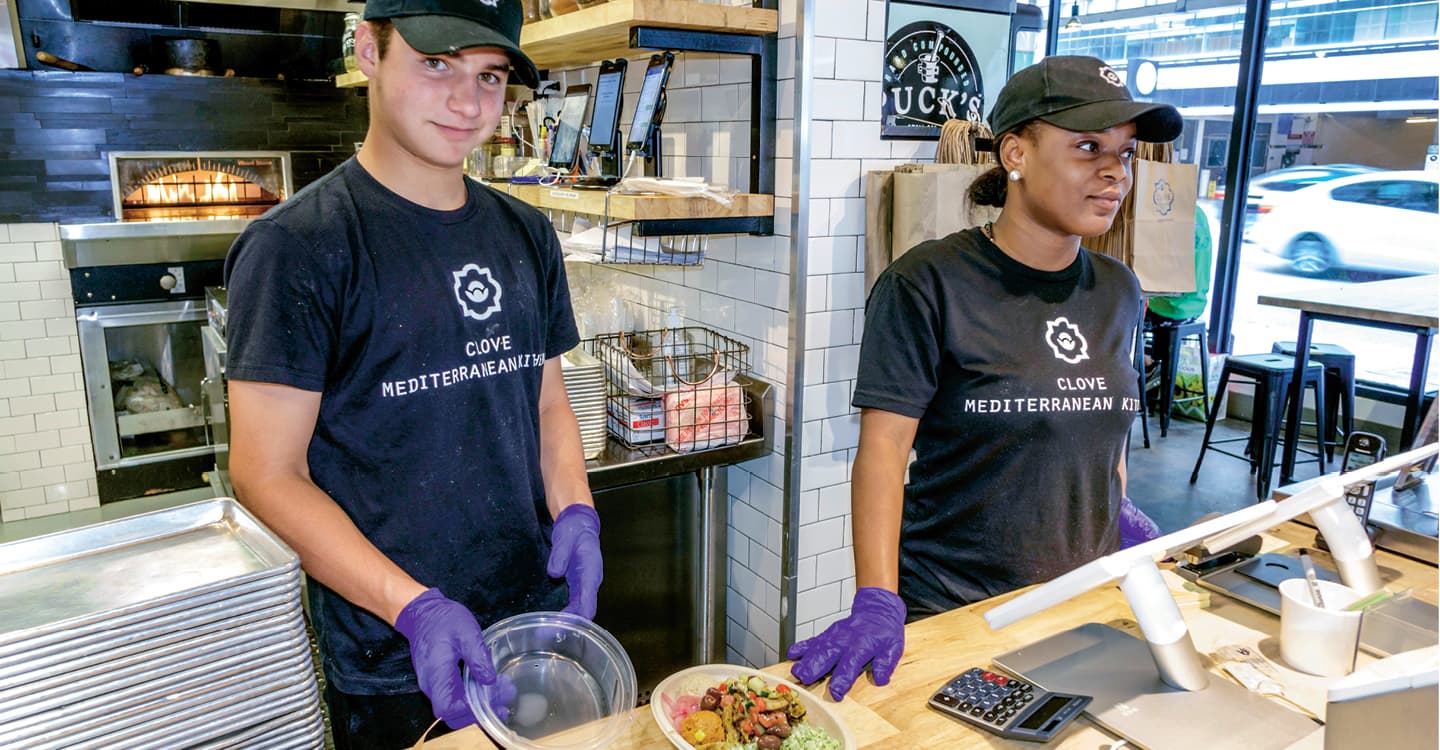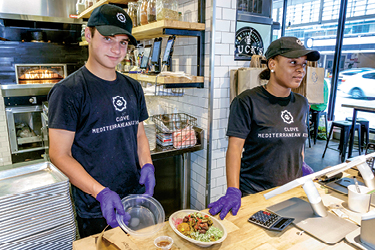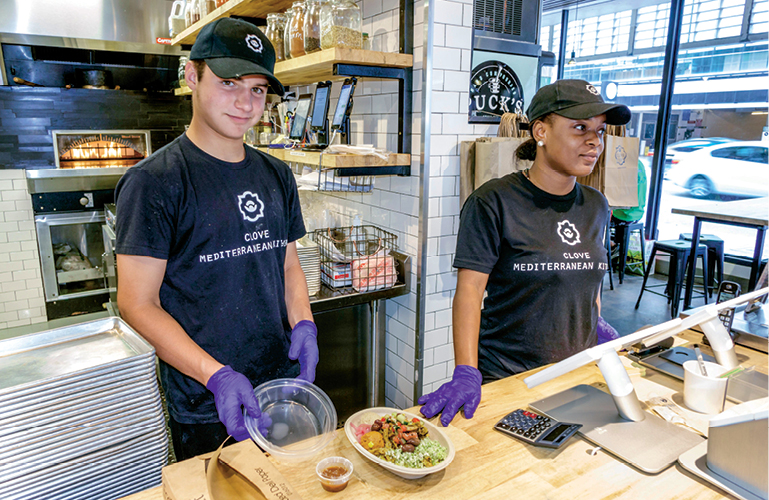Ashley Delva spent much of her teenage years working minimum wage jobs, including restaurant hostess and retail store cashier. Her dad was unable to work after a stroke, so her earnings helped support her family.
Still, the money she earned simply wasn’t enough. The minimum wage in Massachusetts, her home state, was $8 to $11 an hour, depending on the year. That amount didn’t go far in the city of Boston. There were times she struggled to pay her phone bill or couldn’t afford food or hygiene products. And to go to college, she had to take out large loans.
Now Delva’s story—and the stories of others in similar situations—is helping to fuel a movement to raise the minimum wage. So far in 2019, four states (New Jersey, Illinois, Maryland, and Connecticut) have passed laws increasing it to $15 an hour, while New Mexico voted to raise its minimum to $12 an hour. That’s in addition to 21 states and the District of Columbia that had wage rate increases already planned for this year, according to the National Conference of State Legislatures.
But as legislation to raise the minimum wage is drafted around the country, some lawmakers are arguing that teens should be paid less than adults. Angered at being left behind, young people have started banding together to fight for equal pay—and in some cases, they’re winning.
“There are some young adolescents who are fully supporting themselves,” Delva, now 22, says. “Age isn’t a determination of someone’s capabilities and skills. We really wanted to fight against that.”
The Fair Labor Standards Act of 1938 established the first federal minimum wage at 25 cents an hour (about $3.81 today, after adjusting for inflation). Since then, Congress has raised it 22 times, though it has remained at $7.25 since 2009 (see “Time for a Raise?” below). The House of Representatives recently passed a bill that would bump the minimum wage up to $15, but the Senate has no plans to vote on it. About half the states, however, have set higher minimum wages that supersede the federally mandated amount.
Ashley Delva spent much of her teenage years working minimum wage jobs. That included working as a restaurant hostess and retail store cashier. Her dad was unable to work after a stroke, so her earnings helped support her family.
Still, the money she earned simply wasn’t enough. She lived in Massachusetts. The minimum wage there was $8 to $11 an hour, depending on the year. That amount didn’t go far in the city of Boston. There were times she struggled to pay her phone bill or couldn’t afford food or hygiene products. And to go to college, she had to take out large loans.
Now, stories like Delva’s are helping to fuel a movement to raise the minimum wage. So far in 2019, four states (New Jersey, Illinois, Maryland, and Connecticut) have passed laws increasing it to $15 an hour. New Mexico voted to raise its minimum to $12 an hour. And 21 states and the District of Columbia already had wage rate increases planned for this year, according to the National Conference of State Legislatures.
Legislation to raise the minimum wage continues to be drafted around the country. But some lawmakers are arguing that teens should be paid less than adults. That’s angered young people who feel like they’re being left behind. They’ve started banding together to fight for equal pay. In some cases, they’re winning.
“There are some young adolescents who are fully supporting themselves,” Delva, now 22, says. “Age isn’t a determination of someone’s capabilities and skills. We really wanted to fight against that.”
The Fair Labor Standards Act of 1938 established the first federal minimum wage at 25 cents an hour. That’s about $3.81 today, after adjusting for inflation. Since then, Congress has raised it 22 times. It’s remained at $7.25 since 2009 (see “Time for a Raise?” below). The House of Representatives recently passed a bill that would bump the minimum wage up to $15. However, the Senate has no plans to vote on it. But about half the states have set minimum wages that are higher than the federally mandated amount.



